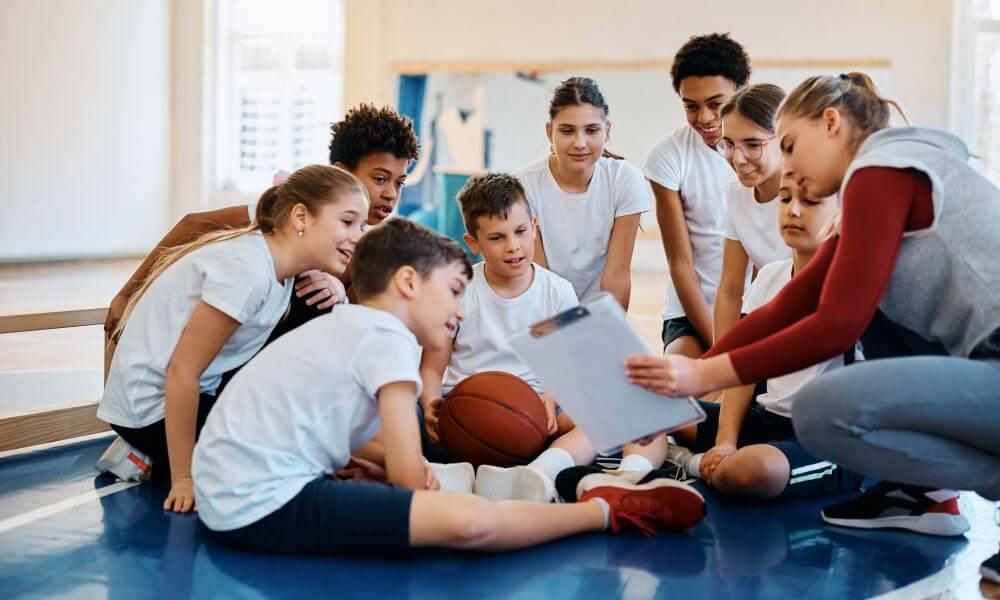What are the essential skills we need for learning and life, and how can teachers help students to develop them? The Australian Council for Educational Research (ACER) has been working with more than 30 countries to identify 5 essential skills and design a suite of free educator resources. It has just released 2 new frameworks – for Communication and Self-regulation – joining existing offerings for Critical thinking, Creative thinking and Collaboration.
In this expert Q&A, lead author Dr Claire Scoular – Principal Research Fellow at ACER – shares more information about the skills, and how these frameworks can support educators with curriculum integration, classroom teaching and assessment.
What do we mean by essential skills for learning?
The skills agenda has become somewhat of a dumping ground for anything that isn’t academic content. This means that educators are faced with unrealistic demands on their time to embed a large number of constructs (skills, attributes, characteristics, values, and dispositions) that are deemed important for students’ holistic development into their practice. Rather than focusing on quantity, it is more manageable, sustainable, and realistic for education systems, and by proxy educators, to identify and focus on the essential skills that will have the highest impact on students’ learning, and this has been the focus of our work in recent years.
You’ve been leading work at ACER to map out frameworks for these essential skills, narrowing it down to just 5. Can you take us through each of those skills?
To think critically is to analyse and interpret information, ideas and situations, and evaluate them according to appropriate criteria for the purpose of constructing sound and insightful new knowledge, understandings, hypotheses and beliefs. Critical thinking encompasses an ability to process and synthesise information and apply it judiciously for informed decision making and effective problem-solving.
Creative thinking is the capacity to generate many kinds of ideas, experiment with ideas, and explore how they might produce novel and effective responses to challenges and solutions to problems.
Collaboration refers to the capacity of an individual to contribute effectively in a group. This involves perseverance, contributing to team knowledge, valuing contributions of others and resolving differences. Effective collaboration involves a division of labour with participants who are engaged in active discourse that results in a compilation of their efforts.
Communication is the capacity of individuals to clearly and effectively transmit and receive information to exchange ideas, construct meaning, and achieve a common understanding.
Self-regulation in a learning context involves taking responsibility for one’s learning through a continuous and active task of planning, monitoring, and evaluating their cognitive, behavioural, and emotional processes.
Can you explain a bit about the process behind that selection – why these 5?
We had 3 main criteria for selecting the skills:
- they are essential for learning, equipping students with the necessary toolkit for learning and for life
- they are teachable; educators are able to nurture and develop them through intervention and pedagogical strategies
- they are measurable; they are able to be understood in an observable way so as to be demonstrable through assessment and monitored in a consistent way across learning contexts
These specific 5 skills were identified through several means. We conducted a policy review directly with education systems in over 30 countries to identify what the main priorities were in relation to the skills agenda. We reviewed studies that surveyed workforce demands globally. And we held focus groups with educators in relation to their current practice and which skills are currently being taught in schools. These 5 skills emerged as the most prominent in each of these explorations.
That isn’t to say other skills, values, dispositions aren’t important, but these skills have a high impact. For example, particularly post-pandemic, many educators want to develop resilience in their learners, being able to pull apart problems and look at them differently (creative thinking), being able to identify reliable sources of information (critical thinking), and being able to identify reliable people to lean on or work with (collaboration) will support our resilience. Wellbeing is also another valued undertaking in schools. Being able to take responsibility for ourselves and self-regulate our emotions and behaviour (self-regulation), being able to communicate as well as receive information effectively (communication), and being able to make informed decisions (critical thinking) will improve our wellbeing.
Identifying the skills is one thing, but the tricky part for educators is of course being able to support their development. How will these frameworks help?
The ACER skill development frameworks support researchers and educators to better understand the skills by a) defining the skill conceptually, b) breaking down the skill into the various strands and aspects that comprise it, c) presenting the aspects as observable behaviours in learners, and d) identifying different levels of proficiency in the skill.
While there are many definitions of these skills, few definitions seek to describe them as observable behaviours that we would expect to see in capable learners in the classroom. The aspects contained within the skill frameworks are designed to provide foci for teaching and form the basis of assessment. For example, educators can integrate teaching of an aspect into a lesson, rather than the whole skill allowing for more manageable bite-sized chunks to be of focus.
An intended benefit of these frameworks is the provision of consistent terminology with which to describe the skills, and the associated aspects and levels of proficiency, within and across learning areas, schools, and systems.
Levels of skill development presented in each framework describe how growth in a particular skill can be demonstrated, and how learners move from early, to more advanced application and understandings. These progressions of skill development provide information about how learners are currently applying the skills to their learning and also provide a basis for monitoring individual progress over time. The higher level of proficiency directs educators as to what to do next to enhance learning and application of the skills.
Another important aspect is how to fit all of that in, along with the demands of the other curriculum areas.
We can think of this set of essential skills as a toolbox, or a set of resources that students can develop and use to enhance their learning, and engagement with life. The skill development framework describes the skills as a generally applicable set of competencies. However, the teaching and assessment of the skill is necessarily context-specific and must take place within a learning area.
The concept of thinking about the skills as separate from knowledge stems from how many curricula are currently presented, sitting separate from one another, or with skills viewed as an ‘extra’ undertaking. Skills and knowledge can be strengthened when viewed as interwoven. We can apply the essential skills to develop more knowledge, for example knowing where to seek reliable information (whether text/visual or from others), navigating contentious issues or contradictory information, or strategies for managing time and resources.
Is this something all educators need to be thinking about? In terms of different disciplines, is it possible to transfer these skills to other contexts?
The strands and aspects within the frameworks are intended to be applicable across a broad range of learning areas. Embedding each skill within learning areas gives its application context, ensures it is relevant to existing curriculum, and that it can be sustainably integrated in a classroom context.
While progress can be described in a general way – for example, what a highly proficient critical thinker demonstrates compared to a less proficient critical thinker– the application of the skill is still dependent on the learning context. The level of application in one learning area will not necessarily transfer equally to another learning area.
Each of the 5 published ACER skill development frameworks detail the related skill development levels and include a well-referenced literature review summarising the available evidence used to inform ACER’s definition of the skill and rationale for its key components forming the strands and aspects of the framework. You can download all 5 frameworks for free, and the Essential skills for learning outline report, at the links in the References section at the foot of this article.
Stay tuned: In an upcoming podcast episode, Dr Scoular will unpack the 2 new skill development frameworks – communication and self-regulation – in greater detail and share how they apply in classroom-based learning.
References
Heard, J., Ramalingam, D., Scoular, C., Anderson, P., & Duckworth, D. (2025). Creative thinking: Skill development framework. 2nd edition. Australian Council for Educational Research. https://doi.org/10.37517/978-1-74286-753-3
Heard, J., Scoular, C., Duckworth, D., Ramalingam, D., & Teo, I. (2025). Critical thinking: Skill development framework. 2nd edition. Australian Council for Educational Research. https://doi.org/10.37517/978-1-74286-752-6
Scoular, C., Duckworth, D., Heard, J., & Ramalingam, D. (2025). Collaboration: Skill development framework. 2nd edition. Australian Council for Educational Research. https://doi.org/10.37517/978-1-74286-751-9
Scoular, C. (2025). Essential skills for learning. Australian Council for Educational Research (ACER). https://doi.org/10.37517/978-1-74286-748-9
Scoular, C., Heard, J., & Wardell, A. (2025). Communication: Skill development framework. Australian Council for Educational Research. https://doi.org/10.37517/978-1-74286-749-6
Scoular, C., Teo, I., Heard, J., & Wardell, A. (2025). Self-regulation: Skill development framework. Australian Council for Educational Research. https://doi.org/10.37517/978-1-74286-750-2



